Related Research Articles

Zimbabwe, officially the Republic of Zimbabwe, is a landlocked country in Southern Africa, between the Zambezi and Limpopo Rivers, bordered by South Africa to the south, Botswana to the south-west, Zambia to the north, and Mozambique to the east. The capital and largest city is Harare, and the second largest is Bulawayo. A country of roughly 15 million people, Zimbabwe's largest and dominant ethnic group are the Shona, who make up 82% of the population, followed by the Northern Ndebele and other smaller minorities. Zimbabwe has 16 official languages, with English, Shona, and Ndebele the most common.
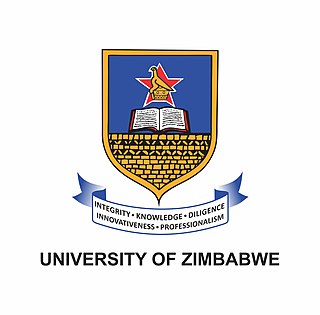
The University of Zimbabwe (UZ) is a public university in Harare, Zimbabwe. It opened in 1952 as the University College of Rhodesia and Nyasaland, and was initially affiliated with the University of London. It was later renamed the University of Rhodesia, and adopted its present name upon Zimbabwe's independence in 1980. UZ is the oldest university in Zimbabwe.
Reproductive rights are legal rights and freedoms relating to reproduction and reproductive health that vary amongst countries around the world. The World Health Organization defines reproductive rights as follows:
Reproductive rights rest on the recognition of the basic right of all couples and individuals to decide freely and responsibly the number, spacing and timing of their children and to have the information and means to do so, and the right to attain the highest standard of sexual and reproductive health. They also include the right of all to make decisions concerning reproduction free of discrimination, coercion and violence.

Tsitsi Dangarembga is a Zimbabwean novelist, playwright and filmmaker. Her debut novel, Nervous Conditions (1988), which was the first to be published in English by a Black woman from Zimbabwe, was named by the BBC in 2018 as one of the top 100 books that have shaped the world. She has won other literary honours, including the Commonwealth Writers' Prize and the PEN Pinter Prize. In 2020, her novel This Mournable Body was shortlisted for the Booker Prize. In 2022, Dangarembga was convicted in a Zimbabwe court of inciting public violence, by displaying, on a public road, a placard asking for reform.
Daystar University is a private Christian liberal arts university in Nairobi.
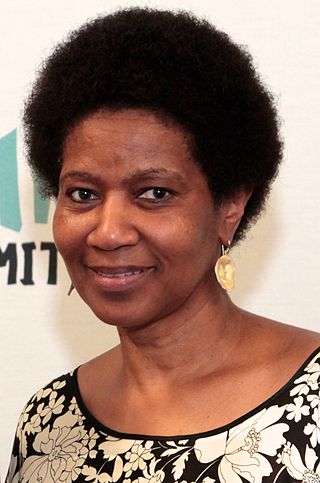
Phumzile Mlambo-Ngcuka is a South African politician and former United Nations official, who served as the Executive Director of UN Women with the rank of Under-Secretary-General of the United Nations.

The National Youth Service was a programme of the Zimbabwean government for Zimbabweans of ages 10 to 30. It was introduced in 2000 by Border Gezi—then the Minister for Gender, Youth and Employment—and the first training camp was established at Mount Darwin in 2001. Its stated purpose was to "transform and empower youths for nation building through life skills training and leadership development." The National Youth Service had been condemned in the West and in Africa for gross human rights violations on behalf of the ZANU-PF party. Within Zimbabwe the graduates of the service were known pejoratively as "Green Bombers" after the fatigue uniforms they wore and the violence the perpetrated. Due to the military training they received as well as their involvement in torture, harassment, and intimidation of opponents of the president they were also known as the "Youth Brigade", “youth militia”, or "ZANU PF militia". The national youth service has been disbanded, reinstated, and rebranded several times over the years, typically resurfacing in the forerunner to national elections, but reports state that they have never completely disappeared. There are reports of secret youth training camps throughout the country. In 2021, the government under former military general President Emmerson Mnangagwa announced a plan to reintroduce a rebranded national youth service.
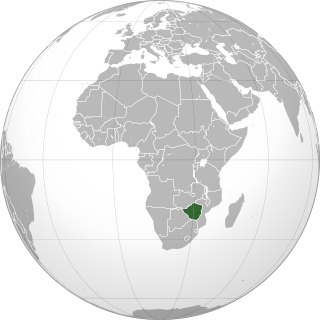
Lesbian, gay, bisexual, and transgender (LGBT) persons in Zimbabwe face legal challenges not experienced by non-LGBT residents. Since 1995, the Government of Zimbabwe has carried out campaigns against LGBT rights. Sodomy is classified as unlawful sexual conduct and defined in the Criminal Code as either anal sexual intercourse or any "indecent act" between consenting adults. Since 1995, the government has carried out campaigns against both homosexual men and women.

Haja Zainab Hawa Bangura is a Sierra Leonean politician and social activist who has been serving as the Director-General of the United Nations Office at Nairobi (UNON) since 2018, appointed by United Nations Secretary-General António Guterres. She served as the second United Nations Special Representative on Sexual Violence in Conflict with the rank of Under-Secretary-General of the United Nations from 2012 to 2017, in succession to the first holder of the post, Margot Wallström. In 2017 she was succeeded by Pramila Patten.
Prostitution in Zimbabwe and related acts, including solicitation, procuring, and keeping a brothel, are illegal but thriving. Zimbabwe's dire economic situation has forced many women into sex work.
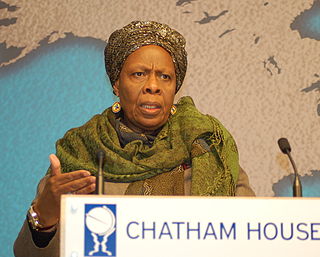
Sekai Holland is the former Zimbabwean Co-Minister of State for National Healing, Reconciliation and Integration in the Cabinet of President Robert Mugabe and Prime Minister Morgan Tsvangirai. Sekai has been involved in a number of human rights issues, from those of the Australian Aborigines, ending the apartheid system in South Africa, the rights of women and democracy in Zimbabwe.
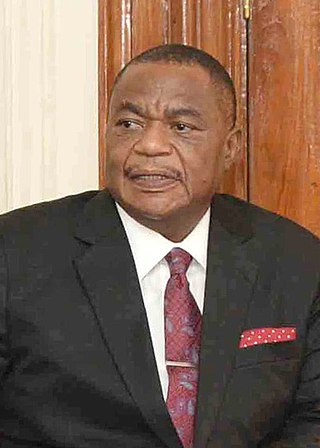
Constantino Chiwenga, is a Zimbabwean politician and former army general currently serving, since 2017, as the First Vice-President of Zimbabwe under President Emmerson Mnangagwa. In August 2020, he added the Health Ministry to his portfolio.

Katherine Emily Holt is a British photojournalist, who works primarily across Africa and the Middle East to gather humanitarian and development stories for NGOs and private companies, as well as the UK and global media. She is also the director of communications agency, Arete.

Barbara Makhalisa, also known by her married name as Barbara Nkala, is a teacher, Zimbabwean writer, Ndebele translator, novelist, editor and publisher, one of the earliest female writers published in Zimbabwe. She is the author of several books written in Ndebele, as well as in English, of which some have been used as school textbooks. Barbara is married to Shadreck Nkala. They have three adult children and six grandchildren.
Everjoice Win is a Zimbabwean feminist activist, and the international head of Action Aid International.

Angeline Murimirwa is a Zimbabwean feminist, who is the executive director for Camfed in Africa. Murimirwa was included in the 2017 BBC 100 Women list of the most influential women.
Joana Ruvimbo Mamombe is a Zimbabwean politician, married to Mfundo Mlilo, former student leader and a member of the Citizens Coalition for Change. She is known to be one of the youngest Zimbabwean members of parliament, representing Harare West.
Rikki Nathanson is a Zimbabwean transgender activist. She founded the organization Trans Research Education Advocacy and Training (TREAT) in 2015. After an arrest for entering a women's bathroom in Bulawayo in 2014, she filed a civil lawsuit for damages which she won in 2019. By that point, she had taken asylum in the US and she now lives in Maryland.
Virginia Khunguni is a women's rights activist from Malawi. She is the founder and director of Girls Arise for Change, an organization that aims to empower women in order to foster social and cultural change. The organization led initiatives in combatting child labor, child marriage and sexual exploitation. Khunguni is a recipient of Queen's Young Leader Award for her work in Africa.

GALZ An Association of LGBTI People in Zimbabwe is an organisation established in 1990 in Harare to serve the needs of the lesbian, gay, bisexual, transgender and intersex (LGBTI) community in Zimbabwe. GALZ's vision is "a just society that promotes and protects human rights of LGBTI people as equal citizens in Zimbabwe".
References
- ↑ "Talent Jumo". 120 Under Forty. Retrieved 2 November 2017.
- 1 2 "Katswe Sistahood wins international award". News Day. 19 November 2015. Retrieved 2 November 2017.
- ↑ "Harare under-age sex scandal in new twist". The Standard. 17 September 2017. Retrieved 2 November 2017.
- ↑ "BBC 100 Women 2017: Who is on the list?". BBC News. 2 November 2017. Retrieved 2 November 2017.
- ↑ "BBC 100 Women 2017: The African Women on The List Taking on The Challenge". African Vibes. 28 September 2017. Retrieved 2 November 2017.